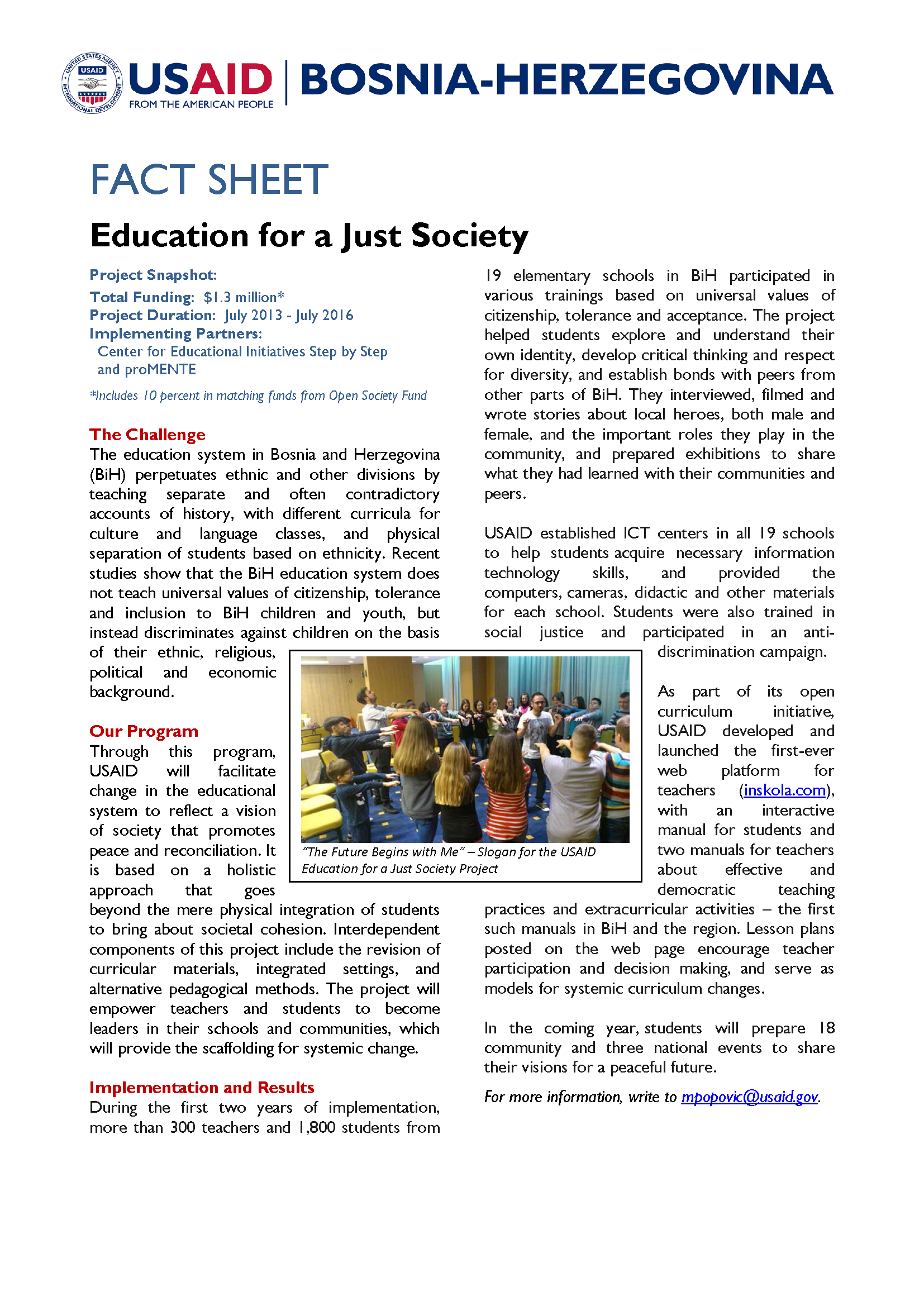Home » News & Information » Fact Sheets » FACT SHEET: Education for a Just Society in Bosnia and Herzegovina (PROJECT CLOSED)
Education for a Just Society ![]() (pdf - 190k)
(pdf - 190k)
Project Snapshot
Total Funding: $1.3 million*
Project Duration: July 2013 - July 2016
Implementing Partners: Center for Educational Initiatives Step by Step and proMENTE
*Includes 10 percent matching funds from Open Society Fund BiH
The Challenge
The education system in Bosnia and Herzegovina (BiH) perpetuates ethnic and other divisions by teaching separate and often contradictory accounts of history, with different curricula for culture and language classes, and physical separation of students based on ethnicity. Recent studies show that the BiH education system does not teach universal values of citizenship, tolerance and inclusion to BiH children and youth, but instead discriminates against children on the basis of their ethnic, religious, political and economic background.
Our Program
Through this program, USAID will facilitate change in the educational system to reflect a vision of society that promotes peace and reconciliation. It is based on a holistic approach that goes beyond the mere physical integration of students to bring about societal cohesion. Interdependent components of this project include the revision of curricular materials, integrated settings, and alternative pedagogical methods. The project will empower teachers and students to become leaders in their schools and communities, which will provide the scaffolding for systemic change.
Implementation and Expected Results
During the first two years of implementation, more than 300 teachers and 1,800 students from 19 elementary schools in BiH participated in various trainings based on universal values of citizenship, tolerance and acceptance. The project helped students explore and understand their own identity, develop critical thinking and respect for diversity, and establish bonds with peers from other parts of BiH. They interviewed, filmed and wrote stories about local heroes, both male and female, and the important roles they play in the community, and prepared exhibitions to share what they had learned with their communities and peers.
USAID established ICT centers in all 19 schools to help students acquire necessary information technology skills, and provided the computers, cameras, didactic and other materials for each school. Students were also trained in social justice and participated in an anti-discrimination campaign.
As part of its open curriculum initiative, USAID developed and launched the first-ever web platform for teachers (inskola.com), with an interactive manual for students and two manuals for teachers about effective and democratic teaching practices and extracurricular activities – the first such manuals in BiH and the region. Lesson plans posted on the web page encourage teacher participation and decision making, and serve as models for systemic curriculum changes.
In the coming year, students will prepare 18 community and three national events to share their visions for a peaceful future.
For more information, write to mpopovic@usaid.gov.








Comment
Make a general inquiry or suggest an improvement.